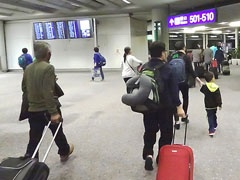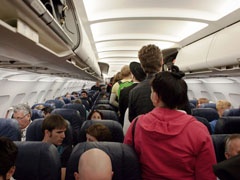 Presently, passenger screening is controlled by the individual airports conducting it - each responsible for the security of their facility and the passengers moving through. Unfortunately, not all airports have the same level of security. Some fall under par while others go above and beyond.
Presently, passenger screening is controlled by the individual airports conducting it - each responsible for the security of their facility and the passengers moving through. Unfortunately, not all airports have the same level of security. Some fall under par while others go above and beyond.
Because of this inconsistency, a very early concept has been thrown around the industry. This concept asks us to take a look at security screening through a hub and spoke perspective. Roughly, this means sending passenger aircrafts to airports with established security controls for screening before heading to their final destination. Could this idea work or would it make situations even more complicated?
Why This Concept Has Emerged?
Airports with poor security controls tend to be small. Many times they are located in developing or underdeveloped nations. As a result, they are likely to have budgetary issues. Keeping up with costly airport maintenance may already be challenging enough. Finding resources to afford the best and latest screening technology may be completely out of reach. That’s why the hub and spoke concept for passenger screening has emerged.
Weak Points of Hub and Spoke Screening
 The hub and spoke screening concept does not directly address inadequacies existing in airports. Instead, it places the responsibility on other airports who meet a certain standard of security. This redirected traffic would overwhelm existing airport operations and drastically reduce performance. Handling the expanded load would inevitably require increased funding, staffing, and capacity.
The hub and spoke screening concept does not directly address inadequacies existing in airports. Instead, it places the responsibility on other airports who meet a certain standard of security. This redirected traffic would overwhelm existing airport operations and drastically reduce performance. Handling the expanded load would inevitably require increased funding, staffing, and capacity.
Airports wouldn’t be the only ones feeling the effects. Travelers would be inconvenienced by additional security checks at the stopover destination. The extra time needed to clear security could potentially delay passengers who miss their connecting flights – affecting not only passengers, but airlines as well. Ultimately, the passenger experience would diminish.
Also, what would happen to existing non-stop flights departing from the airport with inadequate security? Would there now be an extra stop to a more capable airport? In regards to the quality of security at the originating airport – is this security gap to be ignored altogether?
